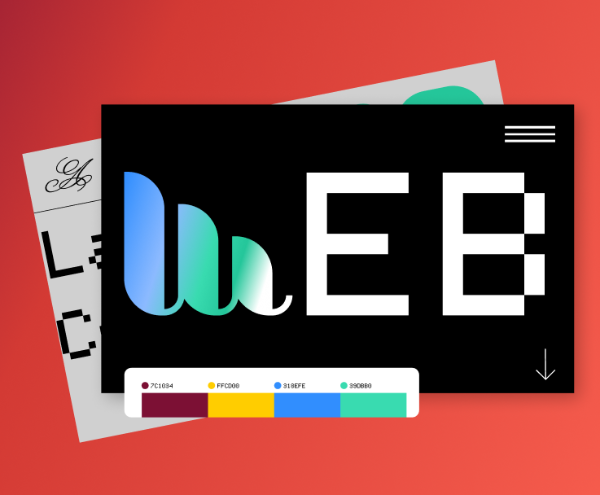Canva Website Template Tips and Tricks
How Canva Website Template Works
Canva Website Template
Website Design Process: A Step-by-Step Guide

Canva Website Template
Canva Website Template
What is a SEO web builder?
A SEO web builder is a website building tool that is specifically designed to help users create websites that are optimized for search engines. These tools typically come with a range of features that make it easier to implement SEO best practices, such as keyword optimization, meta tags, and site speed optimization.
One of the key benefits of using a SEO web builder is that it can help users implement SEO techniques without requiring any technical expertise. This means that even those who are new to SEO can still create a website that is optimized for search engines.
Features of a SEO web builder
There are several key features that are typically included in a SEO web builder. These features are designed to make it easier for users to optimize their website for search engines. Some of the most common features include:
– Keyword optimization: A SEO web builder will typically include tools that help users identify relevant keywords for their website. These tools will suggest keywords that are popular in a specific niche, making it easier for users to target their content to a specific audience.
– Meta tags: Meta tags are snippets of code that provide information about a webpage to search engines. A SEO web builder will typically include tools that make it easier for users to create and optimize meta tags for their website.
– Site speed optimization: Site speed is an important factor in SEO rankings. A SEO web builder will typically include tools that help users optimize their website’s loading speed, ensuring that it loads quickly and efficiently.
– Mobile optimization: With more users accessing websites on mobile devices, mobile optimization is crucial for SEO. A SEO web builder will typically include tools that help users create a responsive website that looks good on all devices.
Benefits of using a SEO web builder
Using a SEO web builder can offer a range of benefits for website owners looking to improve their SEO rankings. Some of the key benefits include:
– Easy implementation of SEO techniques: One of the main benefits of using a SEO web builder is that it makes it easy to implement SEO techniques, even for beginners. This means that website owners can start optimizing their site for search engines without the need for technical expertise.
– Cost-effective solution: Hiring a professional SEO agency to optimize a website can be costly. Using a SEO web builder is a more cost-effective solution, as it allows website owners to optimize their site themselves without the need for external help.
– Increased visibility: By optimizing a website for search engines, website owners can improve their SEO rankings and increase their visibility online. This can result in more organic traffic and higher conversion rates.
– User-friendly design: A SEO web builder typically comes with a user-friendly interface that makes it easy to create and customize a website. This means that even those with limited technical skills can create a professional-looking site that is optimized for search engines.
Importance of Web Hosting
Web hosting is essential for any website to be visible on the internet. Without web hosting, your website would not be accessible to users. When you sign up for a web hosting service, you are essentially renting server space where your website files are stored. The web hosting provider ensures that your website is available to users 24/7, and also provides technical support and maintenance services to keep your website running smoothly.
Another important aspect of web hosting is website speed and performance. The speed at which your website loads can have a significant impact on user experience and search engine rankings. A reliable web hosting provider will ensure that your website loads quickly and is accessible to users across the globe. In addition, web hosting providers offer security features such as SSL certificates and regular backups to protect your website from cyber threats and data loss.
Different Types of Web Hosting
There are several types of web hosting services available, each with its own set of features and benefits. The most common types of web hosting are:
1. Shared Hosting: Shared hosting is the most basic and affordable type of web hosting. In this setup, multiple websites share the same server resources, including storage space, bandwidth, and CPU power. Shared hosting is ideal for small businesses and individuals with low traffic websites.
2. VPS Hosting: VPS (Virtual Private Server) hosting is a step up from shared hosting. In VPS hosting, websites are hosted on virtual servers that mimic dedicated servers but share server resources with other websites. VPS hosting offers more control and customization options compared to shared hosting.
3. Dedicated Hosting: Dedicated hosting provides users with their own physical server. This type of hosting is ideal for websites with high traffic and resource-intensive applications. Dedicated hosting offers the highest level of performance and security but is also the most expensive option.
4. Cloud Hosting: Cloud hosting is a flexible and scalable hosting solution that utilizes cloud infrastructure to host websites. In cloud hosting, websites are hosted on a network of virtual servers that can be easily scaled up or down based on demand. Cloud hosting is a cost-effective option for websites with fluctuating traffic levels.
Factors to Consider When Choosing a Web Hosting Provider
When choosing a web hosting provider for your website, there are several factors to consider to ensure that you are getting the best service for your needs. Some of the key factors to consider include:
1. Reliability and Uptime: It is crucial to choose a web hosting provider with a proven track record of reliability and uptime. Look for providers that guarantee uptime of at least 99.9% and have robust infrastructure to prevent downtime.
2. Performance and Speed: Website speed and performance are critical for user experience and search engine rankings. Choose a web hosting provider that offers fast servers and optimized performance for your website.
3. Security Features: Security is a top priority for websites, especially those that handle sensitive information. Look for web hosting providers that offer SSL certificates, regular backups, and other security features to protect your website from cyber threats.
4. Customer Support: If you encounter technical issues or need assistance with your website, reliable customer support is essential. Choose a web hosting provider that offers 24/7 support via multiple channels such as phone, email, and live chat.
5. Pricing and Plans: Compare pricing and features across different web hosting providers to find a plan that fits your budget and needs. Consider factors such as storage space, bandwidth, and scalability when choosing a hosting plan.

The Benefits of Canva Website Template
Canva Website Template
Overall, web hosting is a crucial component of building and maintaining a website. Choosing the right web hosting provider and plan can have a significant impact on the performance, security, and success of your website. Whether you are a small business owner, blogger, e-commerce retailer, or large enterprise, selecting the appropriate web hosting service is essential for maximizing the potential of your online presence.


